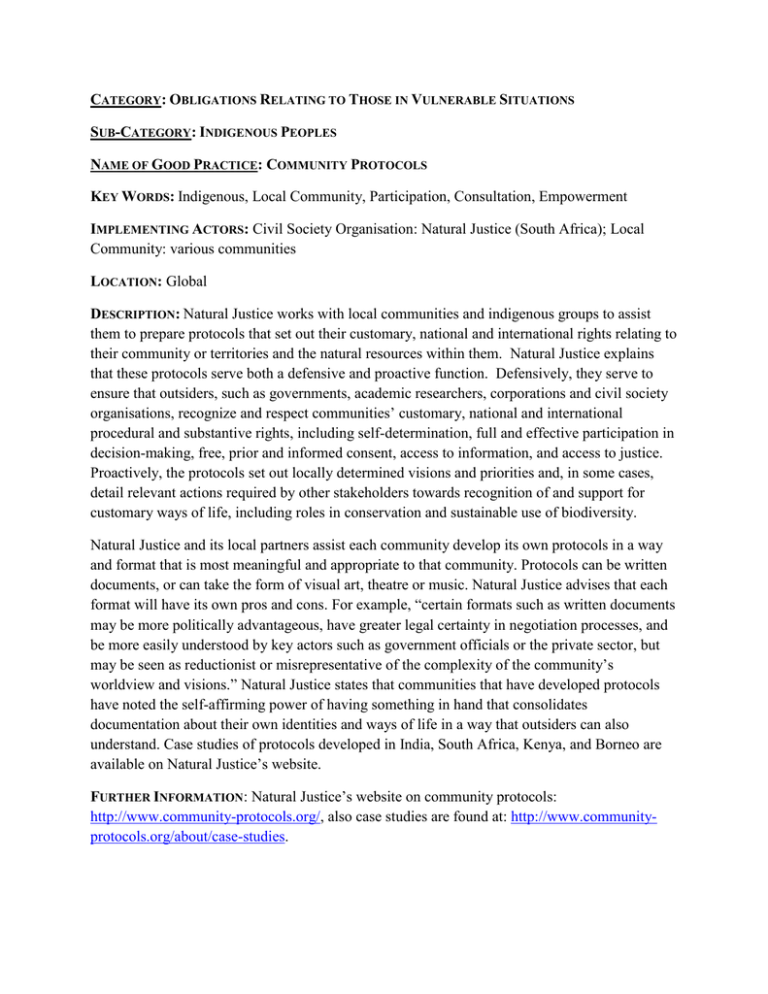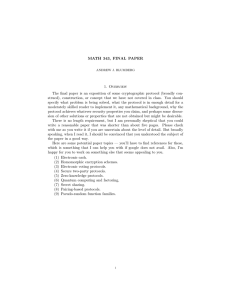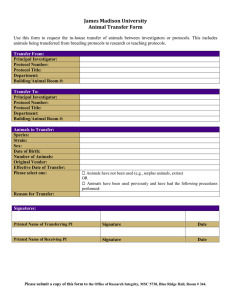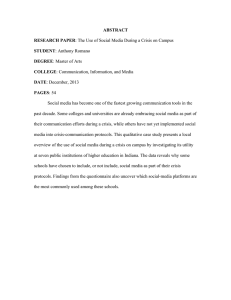C : O R
advertisement

CATEGORY: OBLIGATIONS RELATING TO THOSE IN VULNERABLE SITUATIONS SUB-CATEGORY: INDIGENOUS PEOPLES NAME OF GOOD PRACTICE: COMMUNITY PROTOCOLS KEY WORDS: Indigenous, Local Community, Participation, Consultation, Empowerment IMPLEMENTING ACTORS: Civil Society Organisation: Natural Justice (South Africa); Local Community: various communities LOCATION: Global DESCRIPTION: Natural Justice works with local communities and indigenous groups to assist them to prepare protocols that set out their customary, national and international rights relating to their community or territories and the natural resources within them. Natural Justice explains that these protocols serve both a defensive and proactive function. Defensively, they serve to ensure that outsiders, such as governments, academic researchers, corporations and civil society organisations, recognize and respect communities’ customary, national and international procedural and substantive rights, including self-determination, full and effective participation in decision-making, free, prior and informed consent, access to information, and access to justice. Proactively, the protocols set out locally determined visions and priorities and, in some cases, detail relevant actions required by other stakeholders towards recognition of and support for customary ways of life, including roles in conservation and sustainable use of biodiversity. Natural Justice and its local partners assist each community develop its own protocols in a way and format that is most meaningful and appropriate to that community. Protocols can be written documents, or can take the form of visual art, theatre or music. Natural Justice advises that each format will have its own pros and cons. For example, “certain formats such as written documents may be more politically advantageous, have greater legal certainty in negotiation processes, and be more easily understood by key actors such as government officials or the private sector, but may be seen as reductionist or misrepresentative of the complexity of the community’s worldview and visions.” Natural Justice states that communities that have developed protocols have noted the self-affirming power of having something in hand that consolidates documentation about their own identities and ways of life in a way that outsiders can also understand. Case studies of protocols developed in India, South Africa, Kenya, and Borneo are available on Natural Justice’s website. FURTHER INFORMATION: Natural Justice’s website on community protocols: http://www.community-protocols.org/, also case studies are found at: http://www.communityprotocols.org/about/case-studies.



